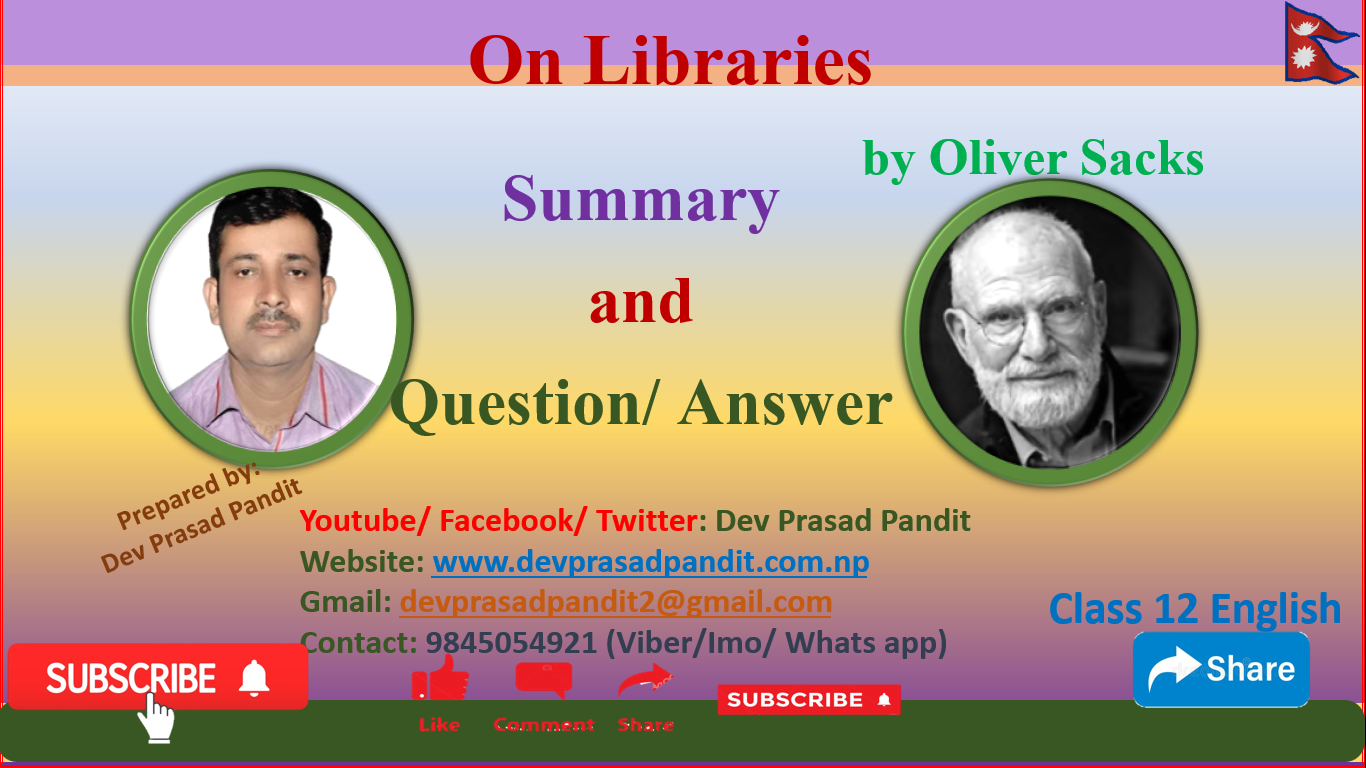On Libraries
by Oliver Sack
About the author
Oliver Sacks was born in 1933 in London
and was educated at the Queen’s College, Oxford. He completed his medical
training at San Francisco’s Mount Zion Hospital and at UCLA before moving to
New York, where he soon encountered the patients whom he would write about in
his book Awakenings. Sacks was a neurologist and an author whose case studies
of patients with unusual disorders became best-sellers. His focus on patients
with particularly rare or dramatic problems made his work popular with writers
in other forms, and his case studies were adapted into several different movies
and operas. Dr. Sacks spent almost fifty years working as a neurologist and
wrote a number of books--including The Man Who Mistook His Wife for a Hat,
Musicophilia, and Hallucinations--about the strange neurological predicaments
and conditions of his patients. The New York Times referred to him as "the
poet laureate of medicine," and he received many awards, including honors
from ‘The Guggenheim Foundation,’ The National Science Foundation, The American
Academy of Arts and Letters, and The Royal College of Physicians. His memoir,
On the Move, was published shortly before his death in August 2015.
“On Libraries” is written in praise of
intellectual freedom, community work, and the ecstasy of serendipitous
discovery. Among the titans of mind and spirit shaped and saved by libraries
was the great neurologist, author, and voracious reader.
Summary
The essay 'On Libraries' is written by
Oliver Sacks. In this essay, the essayist remembers his childhood. He grew in
an oak paneled library inherited from his father where so many books were
stacked. Oliver is happy in this essay
because it is his autobiographical writing. He is so delightful. It is written
in praise of intellectual freedom, community work, high state of unexpected
discovery and so on.
The essayist has good habit of reading
books in libraries. He has found his natural curiosity unstimulated by the
industrial model of education into which he was pushed. At the library he was
master of his own time and mind. He got so many ideas from books. He discovered
the living substance of learning without the ill-fitting structure of
schooling. He apprehended liberation through self-directed learning. He also
found a surprising sense of community, which became a wonderful complement to
his newfound intellectual autonomy. Autonomous learning is very important and
good to achieve success.
The essayist moved to New York City in 1965.
He started to live in a small apartment. It was difficult for him to read and
write but he began to write. He wrote the books on mind. Then, he was accepted
into Albert Einstein College of Medicine where he felt comfort to read and
write. He met another friend there who was also searching for the books of
brain. They had close connection because they shared their knowledge to each other.
He continued reading books in the library. At that time students ignored
bookshelves because of their access of the materials on the computers. Some
libraries started to discard old books. He didn’t like that. For him it was
very bad thing which he took as murder or crime. The library became his escape
from the oppressions and adversity of a young person.
For exercises CLICK HERE.
For another essay CLICK HERE.
For all content CLICK HERE.






.png)
.png)
.png)
0 Comments